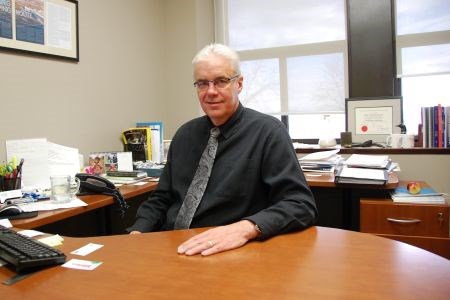Thunder Bay is digging deep into the mining supply and services game.
Last summer, the Thunder Bay Community Economic Development Commission (CEDC) tapped John Mason, a provincial geoscientist with 36 years' experience, to become the city's first project manager of mining services.
The former regional manager of the Ontario Geological Survey's northwestern Ontario office is a well-known figure in Thunder Bay for his in-depth knowledge of the area's mining and exploration sector.
He'll parlay his expertise and contacts to fully capitalize on the region's mineral potential, and to bring greater visibility to what has been, literally, a quiet underground industry.
“My role is to maximize the benefit to the city and region.”
One of his main goals is to boost the service and supply capacity on both the exploration and mining side.
“We're not a Sudbury or a Timmins. We're not a mining community. Headframes aren't about us, but we are a regional exploration and mining service sector.”
There are only five producing mines in the region; however, of the close to $1 billion in exploration spending earmarked this year province-wide, about $475 million will be spent in northwestern Ontario.
Since being hired in June, Mason has been travelling the North attending prospector and mining symposiums, and meeting one-on-one with the miners to discuss opportunities and their immediate needs.
“I was sitting in Timmins beside a supply chain manager for Detour Gold. It was an interesting conversation. I knew it was a big project, but after sitting with him for a half-hour and realizing the extent of the equipment needed, it just blew me away.”
The exploration sector in Thunder Bay been a cottage industry in a city dominated for years by the forestry industry.
However, Mason estimates there are now between 80 and 100 service and supply companies involved in some aspect of exploration and mining, with a workforce of about 1,600.
“We have eight engineering firms in Thunder Bay that deal in mining – led by Genivar and Nordmin – and 21 exploration companies with offices in the city.
“It's absolutely mindboggling with staff doing headframes and hoist systems all over the world whether it's potash in Saskatchewan, gold in Red Lake or work in South America.”
Mason cites several examples of local companies that once catered to the forestry sector that have transferred their bushcraft knowledge and services into mining. It's evident in a spring prospectors show that keeps getting bigger every year.
“This was a pulp and paper community, and we are collectively getting over that, in realizing there are these other business opportunities, with jobs and training that may follow.
“There are many talented tradespeople around and businesses related to that in fabrication, welding, pipefitter, hydraulics that have gotten involved.”
New mining-related businesses have moved into town, including Cliffs Natural Resources, and existing companies are expanding into new space.
Mason discovered that an Aboriginal company, Windigo Catering, employs 80 people and has the housekeeping contract at the remote Musselwhite Mine.
In talking with its manager, Mason said Windigo deals with 40 local companies to procure supplies.
Logistically, Thunder Bay International Airport has become a hub for mining activity as well, with an assay lab a stone's throw from the passenger terminal.
A survey conducted by the authority discovered that mining was the dominant sector among business travellers.
“Exploration and development, whether it's charters or commercial flights, is monumental. It's the largest sector using the airport by far.”
In a presentation to city council this past fall, Mason presented an action plan which included a public awareness campaign.
Mason said it's more than just keeping the public informed about activity, but it's also to address a huge shortage in human resources.
“Many engineering firms can't get enough people, other firms want to come to Thunder Bay, but don't have the staff, so are they're not taking the plunge.
“We're encouraging firms like Osisko, Stillwater, and others with advanced projects to bring forward their labour plans to the union halls, college and university on what may be required to meet their needs.
Mason said there is the prevailing feeling that Thunder Bay didn't take full advantage of the Hemlo gold discovery and development during the 1980s. He wants to develop a similar kind of supply culture that exists in Sudbury, North Bay and Timmins.
“The city has to quickly transition into the realization that there are huge opportunities on our doorstep. We have to be prepared and move forwad and position ourselves to be ready. We are very blessed with the variety of mineral endowments in Northern Ontario and the sky's the limit in term of opportunities to move forward.”




